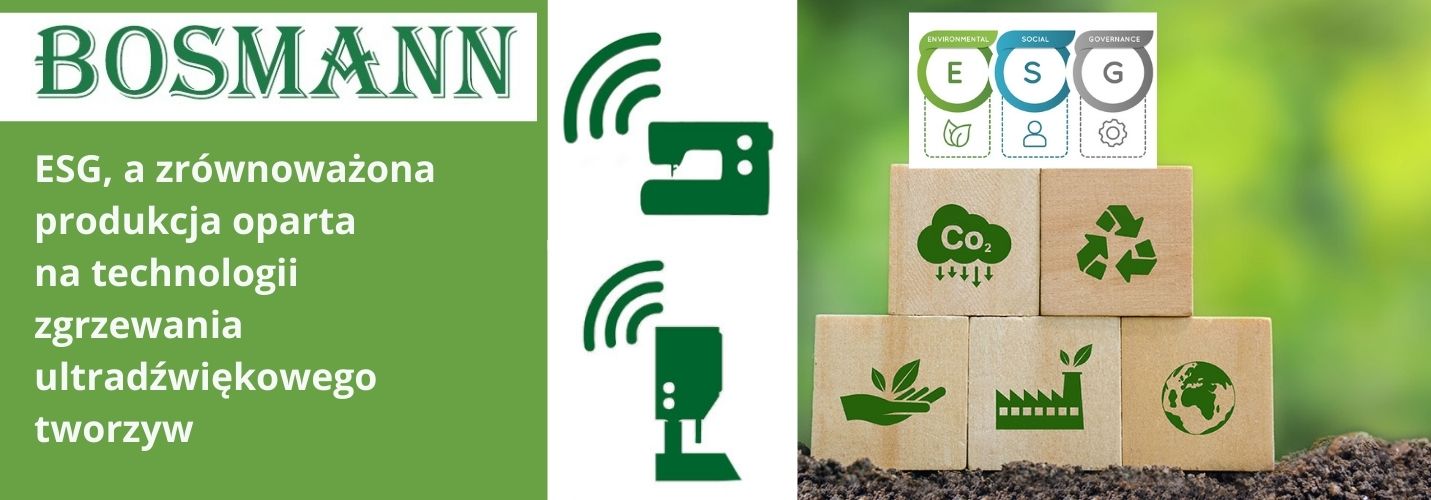ESG, and sustainable production based on ultrasonic welding technology of plastics
ESG (Environmental, Social, and Corporate Governance) is an investment and business management approach that emphasizes three key areas of sustainable development: the environment, society, and corporate governance. It encompasses actions and investments that take into account environmental, social, and governance aspects, striving for a balance between profit and a positive impact on people and the planet.

When it comes to ultrasonic welding of plastics, it is a material joining technique that can comply with ESG principles in the following ways:
Environment (Environmental):
Ultrasonic welding is a relatively ecological method of joining materials because it does not require the use of glue or other chemicals that may be harmful to the environment.
This process is energy efficient and can help reduce energy consumption compared to other connection methods.
Society (Social):
Ultrasonic welding is relatively safe and ergonomic, which contributes to worker safety and minimizes the risk of injuries associated with the material joining process.
It is also a precise and effective joining method, which can contribute to product quality, which in turn can benefit consumers.
Corporate Governance:
The use of ecological and sustainable materials joining methods, such as ultrasonic welding, can be consistent with the principles of good corporate governance, which includes attention to the long-term sustainability of the company and its impact on the environment and society.
Therefore, ultrasonic welding can be an example of a technology that supports sustainability goals and is therefore ESG compliant. However, the effectiveness of ESG-related activities also depends on other factors, such as company management, sustainable development policy and the commitment of the entire company to achieving these goals.
